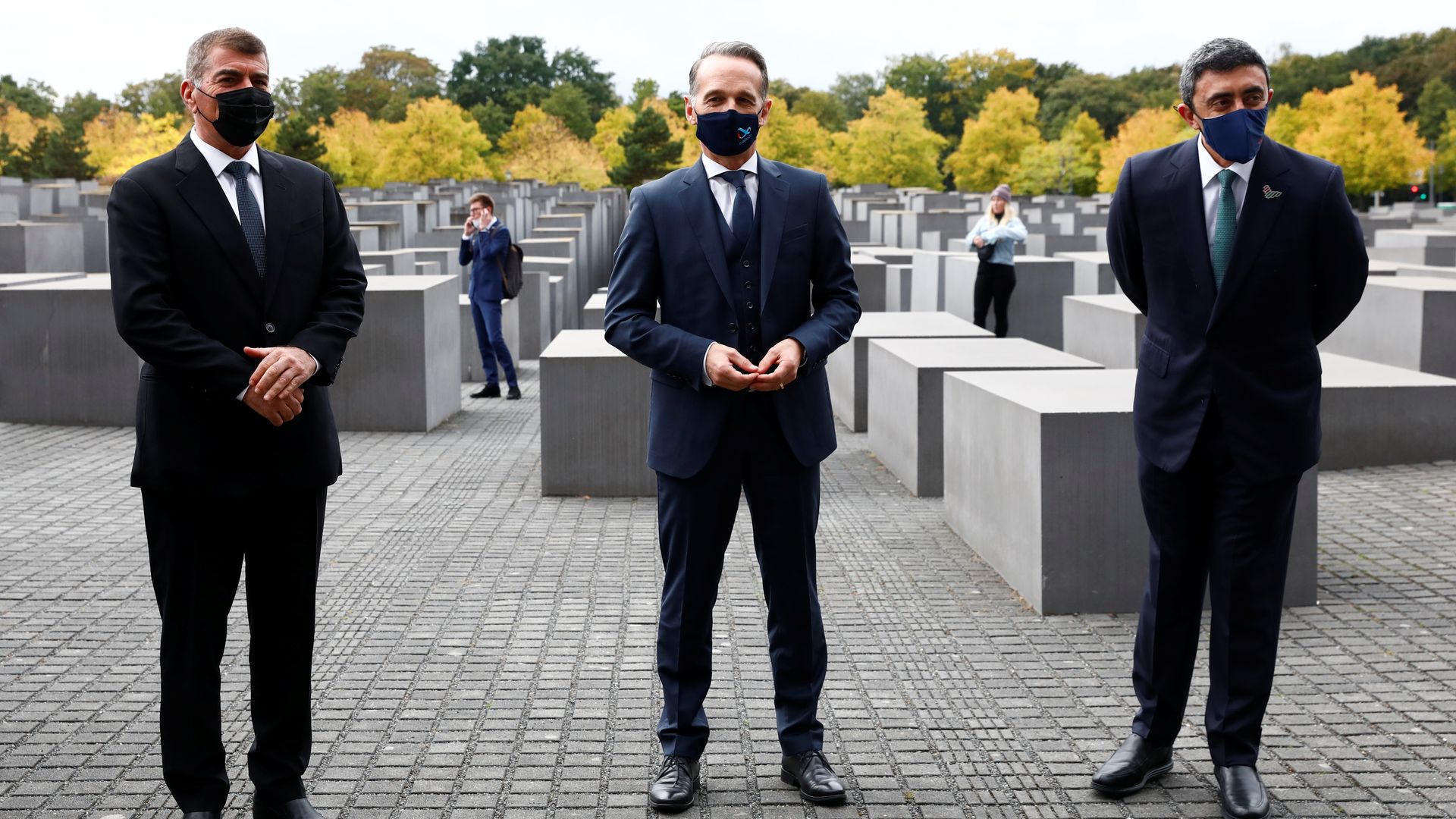UAE foreign minister visits Holocaust memorial with Israeli counterpart
Add Axios as your preferred source to
see more of our stories on Google.

From L-R: Ashkenazi, Maas and bin Zayed. Photo: Michele Tantussi-Pool/Getty Images
UAE Foreign Minister Abdullah bin Zayed visited the Holocaust memorial in Berlin on Tuesday with his German and Israeli counterparts, a significant public gesture that comes two weeks after the signing of a normalization deal with Israel.
Why it matters: Bin Zayed is one of the first senior Arab officials to ever visit a Holocaust memorial.
- The historic visit came at his initiative and was intended to send a message to both Israelis and Jews around the world, German officials tell me.
- Bin Zayed wrote in the memorial's visitors' book that the UAE is committed to the values of tolerance, coexistence and acceptance of others. “Never again will this happen," he added.
The big picture: The Holocaust is a very sensitive issue in many Arab countries due to the Israeli-Palestinian conflict. Many Arab students don't learn about the Holocaust, and some prominent officials have downplayed or even denied it took place.
Flashback: Two Arab leaders have previously made high-profile visits to Holocaust museums:
- Egyptian President Anwar Sadat became the first Arab leader to ever visit a Holocaust memorial during his historic visit to Israel in 1977. Sadat visited Yad Vashem Holocaust museum alongside then-Prime Minister Menachem Begin.
- In 1998, Palestinian leader Yasser Arafat wanted to visit the Holocaust museum in Washington but the board of the museum refused to invite him. Two months later, Arafat visited the Anne Frank House museum in Amsterdam instead.
Behind the scenes: Bin Zayed and Israeli Foreign Minister Gabi Ashkenazi took part in trilateral meetings in Berlin organized by German Foreign Minister Heiko Maas, who coordinated with the Trump administration in advance of the meetings.
- The Germans also notified Palestinian leaders about the visit and asked if there were any issues they wanted Maas to raise with his Israeli and Emirati counterparts, but the Palestinians didn’t respond, according to sources involved in the planning.
During a press conference with both counterparts, the German foreign minister said he hopes the momentum that was created by the Israel-UAE treaty will help to relaunch the Israeli-Palestinian peace process.
- Maas said all relevant parties need to take confidence-building steps to help make that possible.
- Ashkenazi called on the Palestinians to return to the negotiating table, and he said that without a breakthrough in this generation, "future generations face a more difficult reality."
Between the lines: Palestinian President Mahmoud Abbas has refused to meet with the Trump administration ever since Trump announced he was moving the U.S. Embassy to Jerusalem.
- But Abbas recently proposed that an international conference on the Israeli-Palestinian conflict be held after the U.S. election. He's hoping a Biden administration will take office and change America's approach to the issue.
- Abbas has also criticized the UAE and Bahrain for abandoning the condition that normalization with Israel be predicated on the creation of a Palestinian state.
